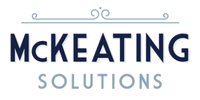Tips for Making Sure You Bring Your A Game to Every Interview

Tips for Making Sure You Bring Your Interview A Game
From a Serial Interviewer
Seriously, I’ve had six jobs in seven years, and a number of interviews in between. It’s what happens when you graduate during a recession like the muck and mire of 2010. I was lucky enough to have not only two parents in business, who had done quite a bit of interviewing candidates for positions, but my mom (gifter of my McKeating heritage and middle name) has mentored many in the art of the interview. Ahh if only her powers of interviewing could have helped find the right job….oh wait! They did! Every job that I’ve had has taught me something important and taken me one step closer to where I am today – the owner of my own business.
 Interviewing is important. I can’t stress it enough. Even if you know going into the interview that you may not like the job, or you may not get the position, interviewing well is vital. Let’s say you didn’t get the job. OK, but you did just meet 2 or 3 other professionals in your industry. These people may remember you positively the next time you apply for a job with their company, or they may change jobs and you could run into them later on. An interview is a great opportunity beyond just landing a job. I think many people focus too much on the obvious outcome of an interview but there are many other potential benefits even for interviews where you don’t land the job.
Interviewing is important. I can’t stress it enough. Even if you know going into the interview that you may not like the job, or you may not get the position, interviewing well is vital. Let’s say you didn’t get the job. OK, but you did just meet 2 or 3 other professionals in your industry. These people may remember you positively the next time you apply for a job with their company, or they may change jobs and you could run into them later on. An interview is a great opportunity beyond just landing a job. I think many people focus too much on the obvious outcome of an interview but there are many other potential benefits even for interviews where you don’t land the job.
When it comes to a failed interview, they don’t prepare for a lack of understanding how to. So I’m here to put an end to that. In this blog post I’m going to be giving you tips for making sure you can bring your interview A Game. It’s easier than you think, it just requires a bit of time and effort on your part.
Tips to Bring Your Interview A Game
- Do Your ResearchResearch those interviewing you via their LinkedIn, Company Bios, etc. And on the company via their website and social media profiles to learn their current initiatives, their values and their culture. This will also help you get an idea of what the dress code is. I’m not sure what other companies think, but when someone comes in for an interview and we’re all wearing jeans, I’m going to take a shot in the dark and say that they aren’t too familiar with our company.This way when they reference something or say something like “I don’t know if you’re familiar with…” you can say that you are!Mentioning things that you’ve learned during your interview will also show that you are prepared and it will be appreciated.
- Polish Up Your ResumeUse concise but accurate descriptions and avoid overly flowery language. You want to include as much important information as you can on one page, while making it as easy to read as possible.You don’t have to include every single job that you’ve ever had. My tip is to put them all one master job sheet, and then copy and paste the relevant ones into the resume that you are submitting and then adjust the language accordingly. You can reference these other jobs in your interview – but you want to keep your resume to one page.Be sure to include or highlight things that speak to their corporate values or company culture. If volunteering is important to the company, be sure to include any pertinent volunteer work that you’ve done. If you haven’t done any, call up your local animal shelter, they’ll take you in a hummingbird’s heartbeat.
- PrepareTake some time to think about the interview and what questions they might ask during it. What questions have stumped you in the past?Be sure to spend some time with the ever dreaded gotcha questions like “What’s your worst flaw” that everyone seems to love to throw in there – and please come up with an answer other than “I’m a perfectionist”. That one is played out and trite anymore.(Coming up with your answers ahead of time will help with the next step.)
Read through your resume and be sure to get familiar with it again. It can be hard to remember all of your responsibilities that you had at a job a few years ago, especially when you’re on the spot with three people staring at your face.
- Practice, Practice, PracticeIt sounds like it goes without saying but I am dead serious. Whether you do it in the shower so no one can hear you and think you’re silly (when they will actually be impressed) or you have someone ask you a list of questions to answer, practicing your answers will give you the confidence you need in these answers and make them feel genuine.Practicing will help with recall as well, so when they throw out the hard questions, you are prepared with an answer., rather than delivering one that feels forced or awkward.I like to practice both ways. In the shower, your brain is uncluttered and allows you to think clearly and be creatively you. But sitting at a table, with someone who can point out little things like improvements in your posture, catch nervous ticks that you don’t know you’re doing the like can be very valuable.
Be sure to practice annunciation, speaking in a clear and calm tone, and your posture. These are things that can easily be forgotten in an interview and can make an impact on the impression you make.
- Invest in a Legal Pad FolioThis gives you a place to tuck their business cards so that you have their contact information and can thank them for their time later.It shows that you are prepared. Interviews are every bit as much about you interviewing the company to make sure it’s a good fit for you as it is about them making sure you are the right fit. Whether you take notes or not during the interview, showing up prepared is important.It also gives you a nice safe place to store extra copies of your resume that you should bring with you, in case they didn’t have the time to print it or they decide to bring additional people into your interview.
- If they ask you a tough question, admit it. Just saying, “Wow, that’s a great question.” will buy you enough time to think about an answer.
- At the end of the interview or if one of your interviewers has to leave early, rise from your seat and shake them in the hand. Looking them in the eye and thanking them for their time makes a good impression.
- Ask them for the job at the end of the interview. You can do it in your own words and make it meaningful. It shows that you really want the position and if it comes down to one or two other candidates, that might make all of the difference needed to have you be the one selected.
